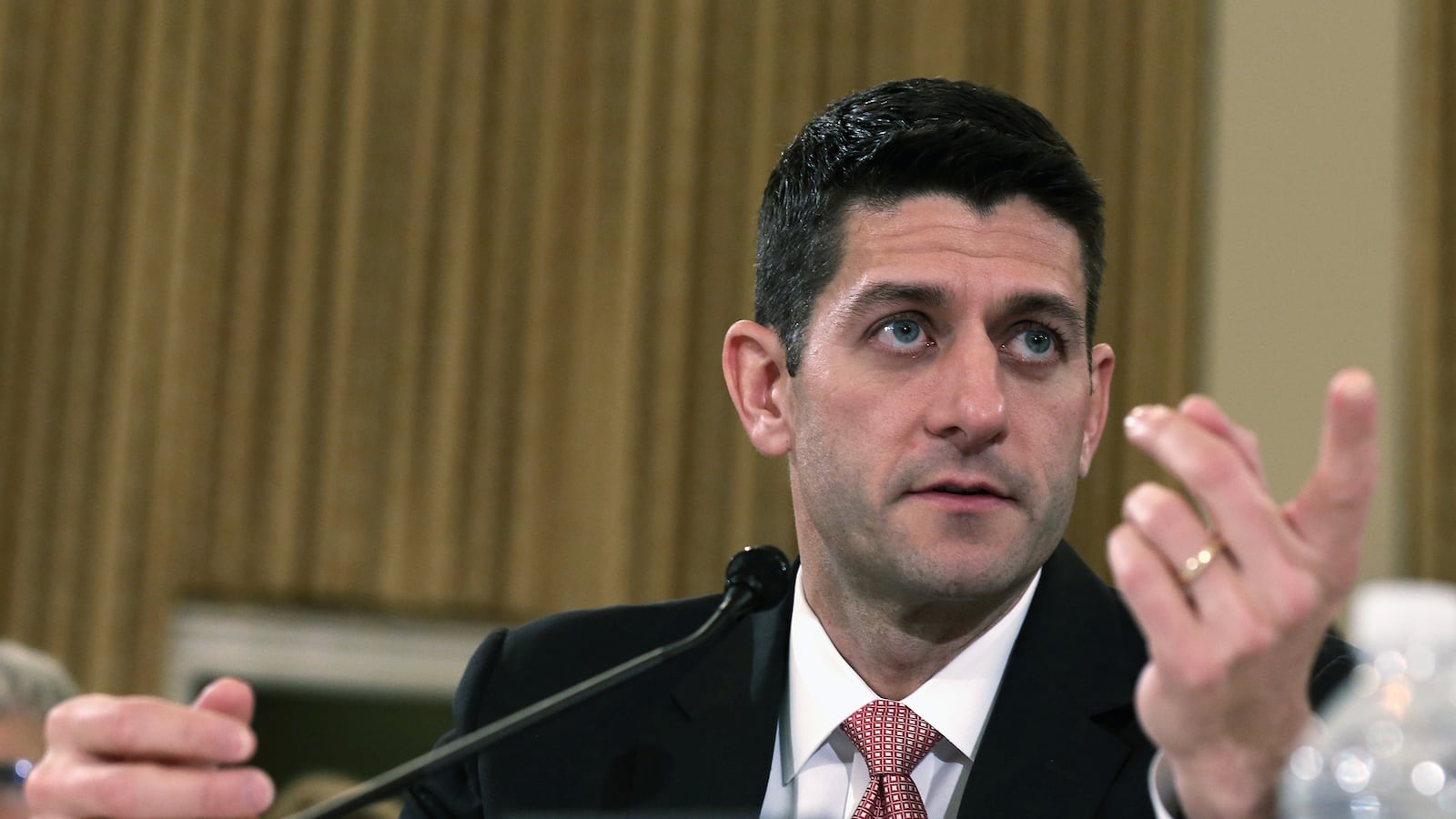
In the four years since the official end of the Great Recession, we’ve seen segments of the economy recover: Wall Street has never been more profitable, and the stock market has never been higher. But millions of Americans remain out of work, and millions more have dropped out of the labor force altogether. In the short-term, this is a tragedy with painful consequences for economic growth. In the long-term—given the long list of social ills that stem from mass joblessness—it’s a disaster for mobility, inequality, and social cohesion.
Which is why, in a sane world, ending mass unemployment would be the paramount goal for both political parties. Instead, what we have is a status quo where Democrats support small measures to make joblessness less painful for the unemployed—while shying away from large scale policies to strengthen the labor market—and Republicans are indifferent to the problem, if they acknowledge it at all. And insofar that the GOP has an agenda for this moment, it’s a variation on their proscription for all economic conditions: Tax cuts, spending cuts, and fewer regulations.
But this isn’t to say there aren’t conservative ideas for dealing with mass unemployment. To wit, in an essay for the National Interest, Michael Strain—of the American Enterprise Institute—outlines a comprehensive agenda for joblessness that fits the small government priorities of the Republican Party.
Strain, who calls mass unemployment an “economic and human catastrophe,” wants more spending on “long-lived investment projects” (like highways and other forms of infrastructure), pro-growth monetary policy (i.e. a Federal Reserve that takes unemployment as seriously as it does inflation), subsidized wages for the long-term unemployed, relocation programs to move people to high growth areas, and increased work-sharing, so that firms can weather recessions with minimal layoffs.
With the exception of infrastructure spending, these are supply-side solutions that encourage firms to hire and workers to stay in the labor market. And while they might strike liberals as inadequate to the underlying issues in the economy—an overall lack of demand—there’s no doubt that Strain’s proposal is more comprehensive than anything offered by the Republican Party in five years of economic crisis.
But that’s the whole problem. Not only does the GOP show a lack of concern for the unemployed—as evidenced by its opposition to emergency unemployment benefits—but it has nothing to offer on the broader question of what to do during recessions. And indeed, when Strain writes that “Conservatism properly understood is deeply concerned about society’s vulnerable and about the health and functioning of society more broadly,” it’s hard not to see it as divorced from political reality, to say nothing of his own essay, which devotes considerable space to convincing conservatives that mass joblessness is a problem.
Indeed, for all there is to admire about Strain’s proposal, the truth is that his ideas exist at the margins of conservative politics in the United States. The actual anti-poverty agenda of the Republican Party comes from figures like House Budget Chairman Paul Ryan, who see government programs as “a hammock that lulls able-bodied people to lives of dependency and complacency, that drains them of their will and their incentive to make the most of their lives.”
Which is to say that if Strain were right about conservatism, Ryan’s rhetoric and actions would be an aberration. But they aren’t. In the last year, Republicans—both in Congress and in the states—have pushed for cuts to food stamps, unemployment insurance, and other programs for the poor and vulnerable. They’ve pushed for drug tests to discourage welfare applicants, crusaded against the health care law, and rejected its Medicaid expansion, blocking health insurance for millions of people.
Either Republicans aren’t practicing conservatism “properly understood,” or conservatives doesn’t care as much about the vulnerable as Strain would like to believe.






